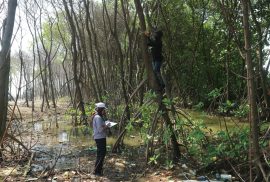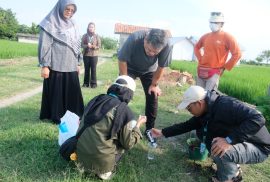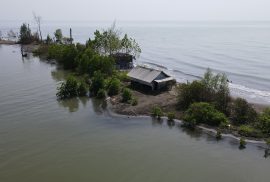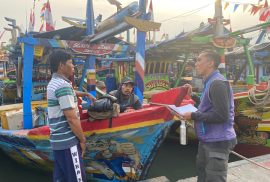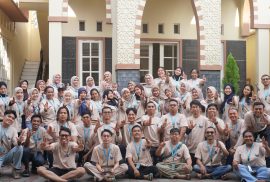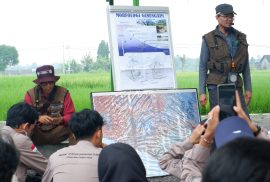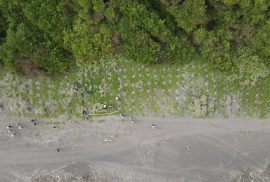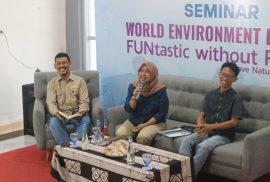The Biotic Studies Team from the Master of Environmental Science Program at Universitas Gadjah Mada (UGM) conducted a Field Work Course (Kuliah Kerja Lapangan/KKL) in the Mojo Mangrove Essential Ecosystem (KEE), Pemalang Regency. The team analyzed mangrove community structure, measured carbon stocks, and assessed environmental parameters affecting the mangrove ecosystem in an area designated as a role model for collaborative mangrove management in Indonesia.
(Documentation of Activity)
Previous studies by Renta et al. (2016) indicated that Avicennia marina dominates the tree level with an Importance Value Index (IVI) of 153.24, while Rhizophora mucronata dominates the sapling level with an IVI of 171.40. The area demonstrates significant carbon sequestration potential, with estimated biomass carbon stocks of 21.55–144.22 tons C/ha and sediment carbon stocks of 98.45–181.06 tons C/ha, averaging a total carbon stock of 155.13 tons C/ha. These findings position the Mojo mangrove forest as one of the most effective natural solutions for mitigating greenhouse gas emissions.

